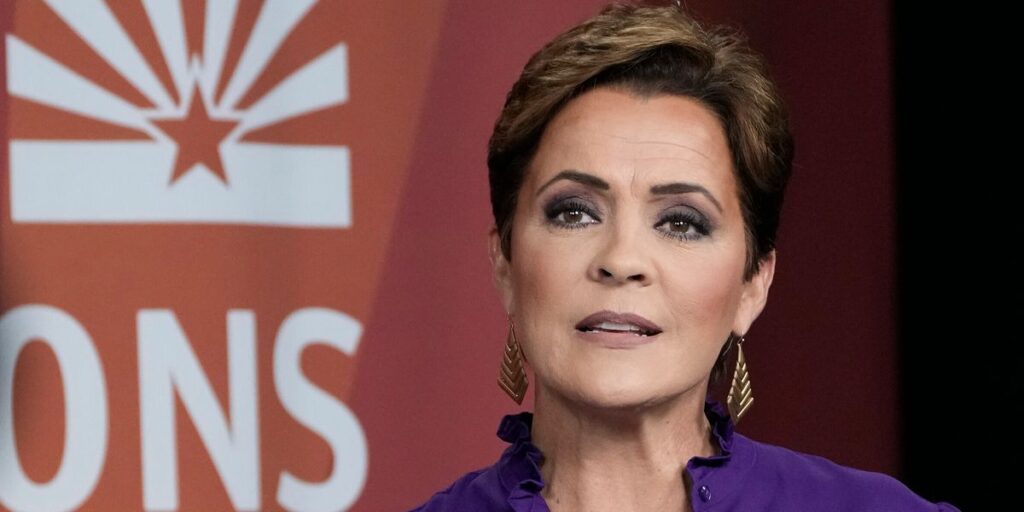During an Arizona Senate debate, Republican candidate Kari Lake was confronted by her Democratic opponent Ruben Gallego regarding her refusal to acknowledge the outcome of the 2022 gubernatorial election, in which she lost to Katie Hobbs. As they discussed various issues, including water management and climate change, Gallego pointedly asked Lake whether she would admit to winning or losing the election. Lake, however, sidestepped the question, diverting the conversation back to water issues, which drew attention on social media for her evasive response.
Lake has consistently denied the legitimacy of both her own electoral defeat and Donald Trump’s loss in the 2020 presidential election. This public display of denial has drawn scrutiny, particularly as she campaigns for the U.S. Senate seat vacated by independent Kyrsten Sinema. Her reluctance to clarify her election loss raises concerns about her credibility among the electorate, especially in light of Gallego’s assertions that she remains in denial about pivotal political issues, including climate change.
As the debate progressed, Lake pivoted to criticize Gallego’s record on water policies instead of directly addressing the election question. This tactic of avoidance seemed strategic, as surveys indicate that Gallego has a substantial lead in the polls. Lake might be attempting to minimize discussion surrounding her unsuccessful attempts to challenge the election’s results, which have been seen as detrimental to her campaign.
Responses on social media reflected a mix of skepticism and amusement regarding Lake’s handling of the debate question. Many observers pointed out that her inability to answer a straightforward query about the election outcome further undermines her political standing. Comments from users expressed disbelief that she continues to evade accountability while running for a significant political position.
Gallego’s repeated insistence on the question highlighted the stark contrast between the two candidates, with his willingness to face uncomfortable truths serving as a defining aspect of his campaign. Meanwhile, Lake’s deflection not only led to mockery but also intensified existing narratives around her credibility and approach to governance, suggesting she is more focused on deflecting criticism than addressing the concerns of Arizona voters directly.
In conclusion, the exchange during the debate underscores the evolving dynamics of the Arizona Senate race. Lake’s evasiveness on the election question, coupled with Gallego’s pointed inquiries, may be pivotal in shaping public perception as the election approaches. With Gallego currently leading in polls, Lake’s strategy of avoiding accountability raises questions about her viability as a candidate in a rapidly changing political landscape, where transparency and acknowledgment of past events are increasingly important to voters.

